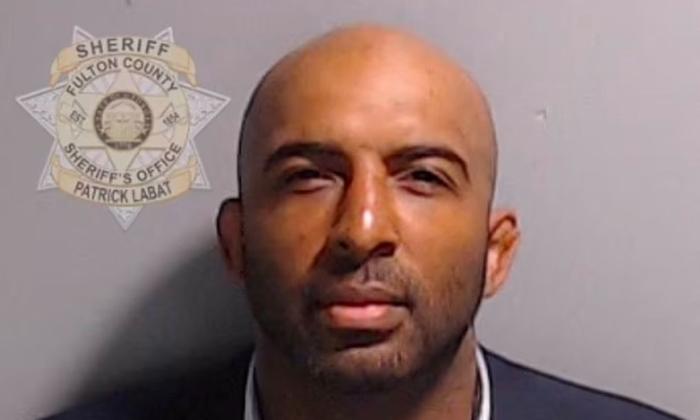A co-defendant of former President Donald Trump is being allowed to appeal a judge’s ruling that Georgia prosecutor Fani Willis did not overstep her authority in bringing election-related charges against himself and others.
Fulton County Superior Court Judge Scott McAfee said in an order filed on March 25 that a motion to allow an appeal of the ruling, from President Trump co-defendant Harrison Floyd, was being granted.
“Upon review of the defendant’s motion for a certificate of immediate review, the court finds that the order denying the defendant’s motion for reconsideration of the order denying defendant’s plea entered January 9, 2024, ‘is of such importance to the case that immediate review should be had,’” he wrote, quoting from state law. “Accordingly, the requested motion is granted.”
State law enables appeals of rulings that are determined to be “of such importance to the case that immediate review should be had.”
Appeals go to the Georgia Court of Appeals.
No appeal has yet appeared with that court, and Mr. Floyd’s lawyer did not return a request for comment.
Mr. Floyd wants the higher court to review Judge McAfee’s ruling that Ms. Willis had authority to bring election-related charges against himself and others, including President Trump.
Ms. Willis “did not have authority to investigation or presentment authority to bring election-related charges against the defendant absent a referral from the State Election Board,“ his lawyers said in a 2023 motion. State law says the George State Election Board (SEB) ”when necessary or advisable the administration of primary and election laws and frauds and irregularities in primaries and elections and to report violations of the primary and election laws either to the attorney general or the appropriate district attorney who shall be responsible for further investigation and prosecution.”
While Ms. Willis has acknowledged she didn’t follow the normal referral process because certain agencies were “conflicted,” Ms. Willis “is not empowered” to ignore the law, the motion stated.
Judge McAfee in the Jan. 9 denial said that state law regarding the board’s responsibilities does not “impede a district attorney’s authority in any way or creates exclusive jurisdiction.” He pointed to the state Constitution, which says district attorneys represent the state in all criminal cases, and a state law that says a district attorney should “prosecute all indictable offenses” and carry out “such other duties as are or may be required by law or which necessarily appertain to their office.”
The laws concerning the board and district attorneys “are not in conflict and can be read harmoniously,” he said at the time.
Even if Mr. Floyd’s bid is successful, that would not end the possibility he’s prosecuted, according to Judge McAfee. But the state board would have to investigate and then refer the matter to a prosecutor, which would then result in “an identical indictment.”
“The court’s order is wrong and side steps a fundamental question of jurisdiction. The issue is not who the district attorney represents or whether a district attorney may bring a prosecution but rather who has the power to investigate election frauds and irregularities and to decide whether it is ‘advisable or necessary’ to bring that prosecution,” the new motion stated.
If the judge’s interpretation held true, “the court’s ruling would allow all 159 district attorneys to operate independently and do what they want regardless of what the SEV decides,” it said. “There will never be uniformity which is a major purpose of the SEB.”
It added: “By having one state-wide body (i.e., the SEB), the statutory scheme provides state-wide analysis, investigation, enforcement, and uniformity. Thus, under the Court’s interpretation, the ‘when necessary or advisable’ language is meaningless surplusage because whether the SEB thinks something is necessary or advisable to prosecute is immaterial to a prosecution. Why have this code section at all?”
He said that his order from January is not a final judgment and could be overturned by a higher court.
“This is highly significant,” Steve Sadow, an attorney for President Trump, said in a statement on the chance to appeal. “It means the defense is permitted to apply to the Georgia Court of Appeals for pretrial review of the judge’s order refusing to dismiss the case or disqualify Fulton County DA Willis. The defense is optimistic that appellate review will lead to the case being dismissed and the DA being disqualified.”







